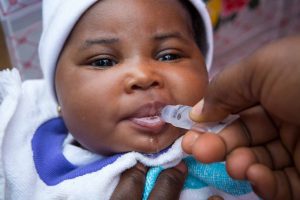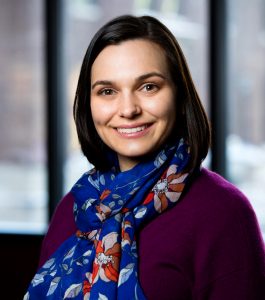
Vaccines are the most powerful and cost-effective means of protecting infants from many life-threatening diseases. But, in order for vaccines to work, many have to be given at the right time in a baby’s first year of life. For parents in low-income countries, getting their infants vaccinated on time can be difficult-to-impossible due to many issues — including a lack of transportation to clinics. To increase vaccination timeliness for infants, a University of Minnesota team is testing a new strategy in Uganda that may offer residents living in high-density urban areas cheap, reliable alternative transportation to clinics.
The University of Minnesota team includes School of Public Health Assistant Professor Nicole Basta, study leader Assistant Professor Diana Negoescu (Industrial & Systems Engineering), and Professor Saif Benjaafar (Industrial & Systems Engineering). Dr. Cecily Banura from Makerere University in Uganda is also a member of the team. The project was recently funded by the Bill & Melinda Gates Foundation Grand Challenges Explorations Program.

“We are thrilled that the Gates Foundation is supporting our highly interdisciplinary team as we work to increase access to measles vaccinations among vulnerable populations in low-income urban areas,” says Basta.
Basta, who studies the impact of vaccines among vulnerable populations, said that in many parts of the world access to vaccination remains a significant challenge.
“We aim to improve access by harnessing the power of network transportation providers, such as Uber and SafeBoda, to integrate with health systems and provide the means for families to reach vaccination clinics,” says Basta.
The team will combine mathematical modeling efforts led by Negoescu with epidemiologic field studies led by Basta and Banura to design and evaluate an intervention that provides new mothers with vouchers to access services, such as Uber, to pay for rides to clinics when their infants are due for vaccinations. The system would also send mothers text-message reminders of when it’s time to vaccinate their babies.
During this pilot project, the researchers will model the expense and benefits of increasing vaccination timeliness and rates in urban areas of Kampala, Uganda. They’ll also work with a group of Kampala residents to learn more about the most effectives ways to overcome barriers to vaccination, and to assess their access to cell phones, which they’ll need in order to receive text messages and use shared transportation services.
If the pilot project is successful, the team will scale up the concept to conduct a large, randomized trial to see if the voucher program consistently increases infant first-year vaccination timeliness across Kampala. If the trial shows that the approach could improve access to vaccinations, the system could be used to protect infants when they need it most in similar settings around the globe.
